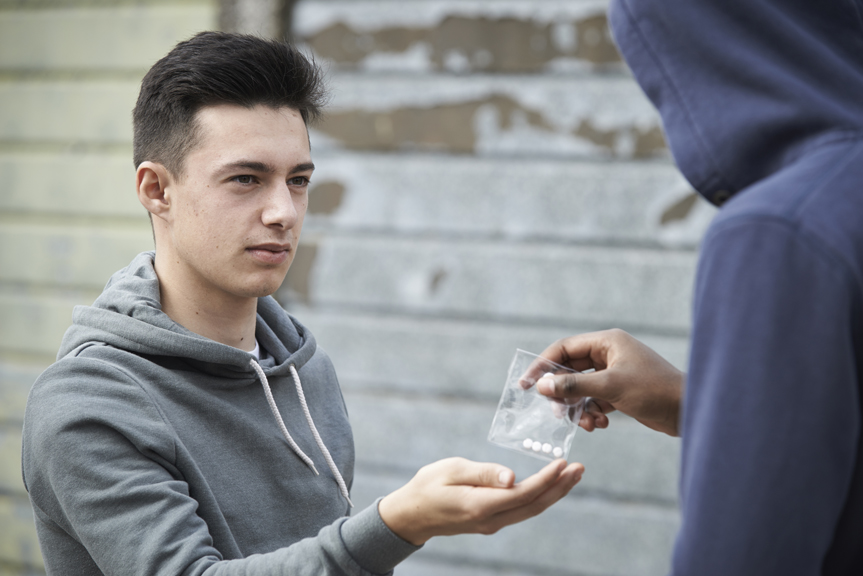- Behavior
- Health
- Parenting
Nurture close relationship with teen to prevent substance abuse

In this article, you’ll find answers to questions like:
1. How to ease tension?
2. How to be role models?
3. Who can help?
During the teen years, it’s only natural to worry about the influence drugs and alcohol could have on your child.
Then, our worries may compound when the evening news warns about the latest designer drugs while our social media feed is flooded with nightmare stories about teenage binge drinking.
1. HOW TO EASE TENSION?
However, maintaining a close relationship with your child throughout their teenage years will help, says Jeff Kadel, executive director of the Palm Beach County Behavioral Health Coalition in Boynton Beach.
“You’ll face less conflict when it comes to monitoring their behavior and social life,” he says. “Studies show that families who argue, fight and treat each other badly and parents who are degrading and use physical punishment have unsupportive child relationships and increase the risk for drug and alcohol use.”
Worried about peer pressure? Empower teens to make their own decisions, even if it’s picking out clothes or choosing what to make for dinner. Encouraging your children to be independent thinkers can help them stay stronger later in challenging peer situations.
2. HOW TO BE ROLE MODELS?
“Conversations need to be often and age appropriate,” says Jan Cairnes, chief executive officer of the Hanley Foundation in West Palm Beach. “The easiest message to give children of all ages is to model appropriate drinking behavior. For example, have a glass of wine with dinner, not a bottle; have a beer, not a six-pack.”
Partnership for Drug-Free Kids, based in New York City, offers dialogue ideas for parents to engage children of all ages and reminds parents they are the biggest influence in their children's lives when it comes to drug and alcohol use.
The Hanley Foundation also wants parents to share the good news with their children that most children in our area don’t drink.
“In fact, 75 percent of Palm Beach County youth do not drink,” Cairnes says. “Acknowledging that trends are always changing is a great first step to staying informed.”
To address new designer drugs such as Flakka, which has been widely talked about recently in South Florida, the Palm Beach County Behavioral Health Coalition created a website called Don't Be a Guinea Pig.
“It illustrates the mystery ingredients of these new drugs, emphasizing you have a lot to live for. You don’t know what these drugs may do to you, so don’t be a guinea pig,” Kadel says.
3. WHO CAN HELP?
Self-assessment tools are an excellent start for finding help. Mental Health America of Palm Beach County offers this free alcohol or substance-use screening online, says Pam Gionfriddo, former chief executive officer. If you have questions about your screening, you can call the national office at 800-969-6642.
If your child appears to be under the influence of a controlled substance, call 911 or go to the emergency room. Immediate medical attention can lower the risk of overdose or long-term side effects that could impact their well-being.
If you suspect your child may be using a controlled substance from time to time, call the 211 HelpLine or visit 211palmbeach.org. This free service can direct you to resources and programs, depending on your situation.
If you think your child is using drugs or alcohol, the Palm Beach County Behavioral Health Coalition recommends you:
• Trust your instincts
• Educate yourself
• Don’t take it personally
• Get professional help
SOURCES:
• Jan Cairnes, chief executive officer, Hanley Foundation
• Jeff Kadel, executive director, Palm Beach County Behavioral Health Coalition
• Pam Gionfriddo, former chief executive officer, Mental Health America of Palm Beach County
You May Also Like
-
- Behavior
- Health
- Parenting
Don't sweat it: Let us guide you on the sex talk with your teen
It’s best to listen first before answering questions about sex and gender identity. Read on for more tips and advice from our local experts on how to make these topics easier and l …
Read More -
- Behavior
- Health
- Parenting
Should I worry my moody teen is sulking too long? Find out here
Periods of teenage angst typically last a few days. However, chronic or prolonged behavioral and mood changes can indicate a mental health concern. If you're concerned about your t …
Read More
Related resources
-
- Behavior
- Health
- Other
Alcoholics Anonymous
Palm Beach County North Intergroup — hotline, meetings and additional support for those struggling with alcoholism and their families, based in West Palm Beach
561-655-5700 Website Email -
- Behavior
- Education
- Parenting
Palm Beach County Behavioral Health Coalition
Local information, events and support for parents and youth to live free of drugs, alcohol and tobacco
561-374-7627 Website Email -
- Behavior
- Health
- Parenting
Partnership to End Addiction
National resource for families struggling with substance use, including their children
Call 855-378-4373 or text a message to 55753 Website Email -
- Behavior
- Health
- Parenting
Children's Behavioral Health Collaborative - Palm Beach County
A collaboration of five local mental health agencies that assess and treat children's serious behavioral, emotional or mental health problems
561-244-9499 Website
